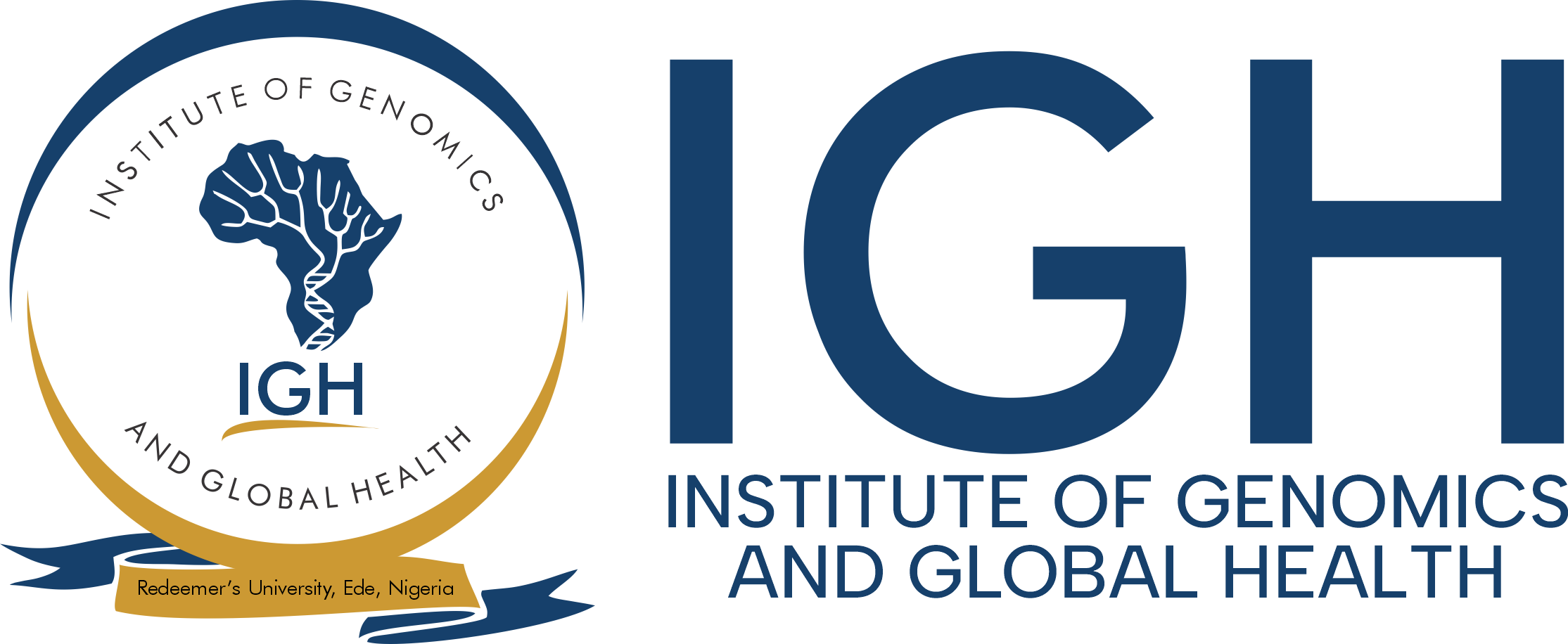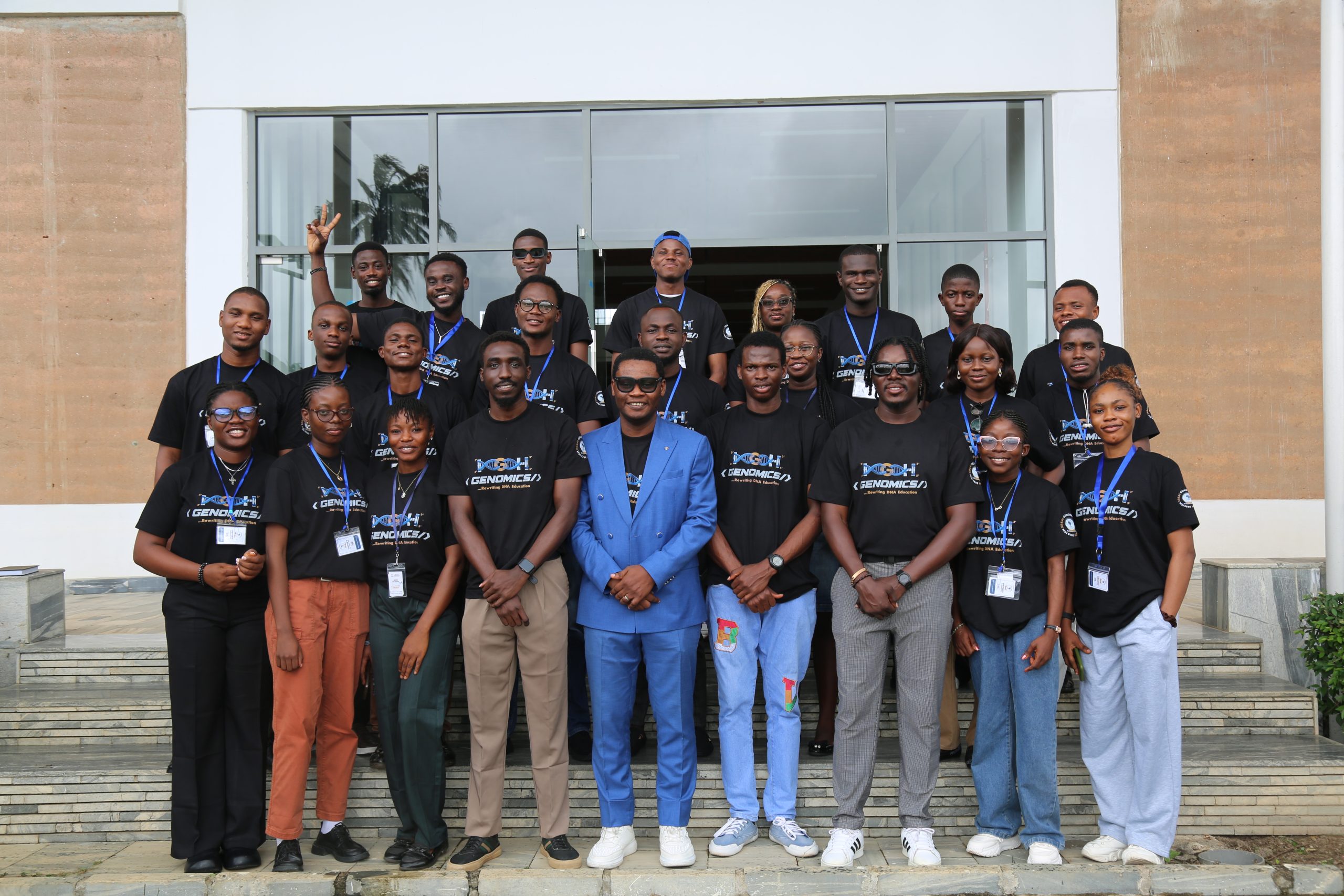August 4–22, 2025 | Institute of Genomics and Global Health, Redeemer’s University, Ede, Nigeria
The Institute of Genomics and Global Health (IGH), formerly known as ACEGID, successfully hosted Africa’s first XR & AI Genomics Hackathon, a landmark initiative designed to advance genomic education, strengthen research capacity, and empower the next generation of African scientists. The three-week-long program combined virtual and on-site engagement to identify and nurture emerging talent in genomics, artificial intelligence (AI), and extended reality (XR) technologies.
Sponsors and Technology Partners:
Bluechip, Vacc Technology, Airtel Business, Focus Group Nigeria, ISN Medicals, Inqaba, TC Sahara, Redleaf, Vita Construction, ScaleUp Lagos, Turner & Townsend, and Imisi 3D (technology partner).
Hackathon Overview
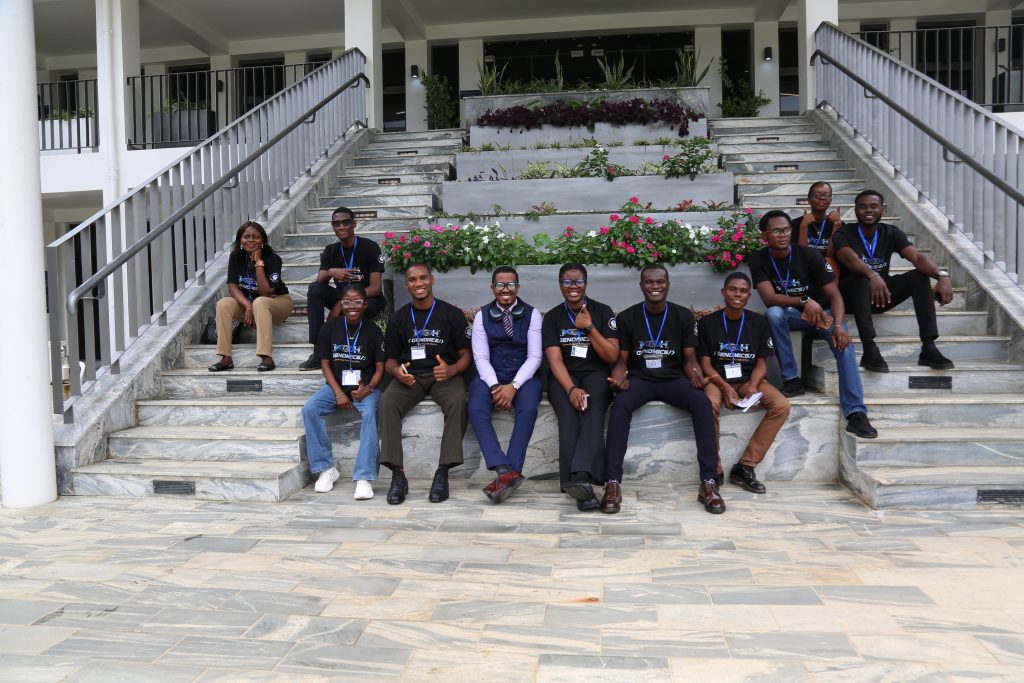
The hackathon ran from August 4 to August 22, 2025, with over 2,000 applicants across Africa submitting entries. Following rigorous evaluation, 200 participants across Africa advanced to the remote phase, with the top 20 selected for on-site engagement. The event was structured to combine technical workshops, mentorship, practical exercises, and a culminating Demo Day, reflecting IGH’s commitment to global standards in scientific training.
The hackathon’s agenda aimed to:
- Reimagine genomics education across Africa
- Equip young scientists with XR and AI tools for research and public health applications
Enable African researchers to compete on a global stage
Remote Phase
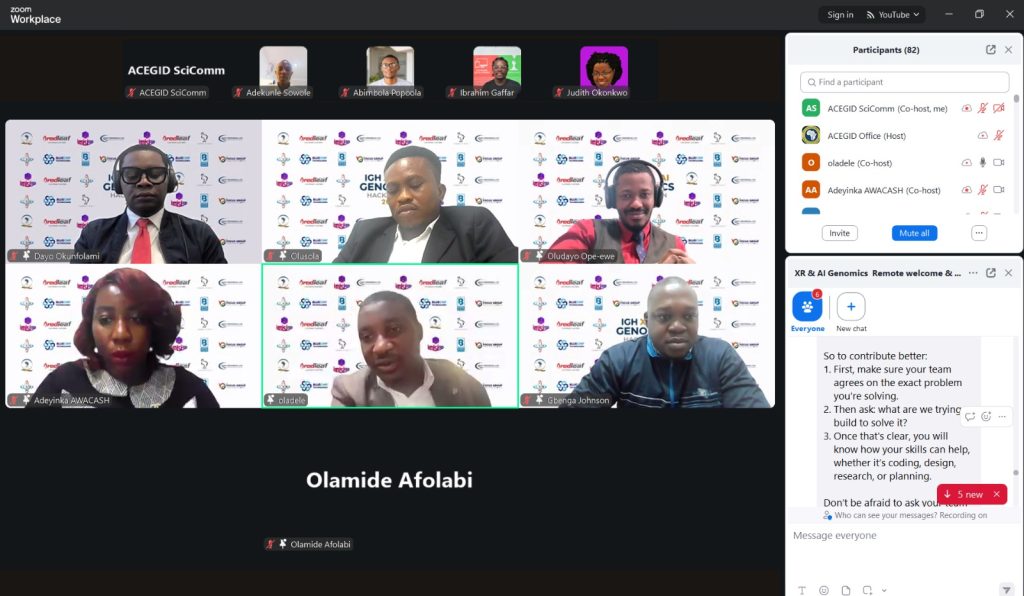
The Remote Phase Launch Day formally inaugurated the hackathon, introducing participants to the vision and objectives, while IGH Director Prof Christain Happi and sponsors outlined resources, mentorship, and evaluation criteria. Participants received orientation on project development, collaboration, and submission guidelines, setting the stage for three weeks of remote project work.
The AI Class provided participants with an understanding of machine learning applications in genomics, including data interpretation, sequencing workflows, and predictive modelling. Trainers highlighted practical use cases during global outbreaks such as COVID-19, emphasising Africa-focused problem-solving.
The XR Classes (Parts 1 & 2) introduced immersive technologies — Virtual Reality (VR), Augmented Reality (AR), and Mixed Reality (MR); for education, laboratory simulations, and genomic data visualisation. Participants explored low-cost, scalable solutions suitable for African classrooms and research labs while addressing challenges such as data privacy and infrastructure limitations.
The Genomics Class grounded participants in fundamental sequencing workflows, bioinformatics tools, and real-world case studies. Practical exercises provided hands-on experience with open-source software and emphasised collaboration, cost-effective strategies, and alignment with local health priorities.
The Final Remote Phase Presentation showcased over 200 participant projects, blending XR, AI, and genomics innovations. Judges from IGH, ISN Medicals, and ScaleUp Lagos selected the top 20 participants to advance to the on-site phase, highlighting the strongest, most scalable ideas for Africa-focused impact.
On-site Phase
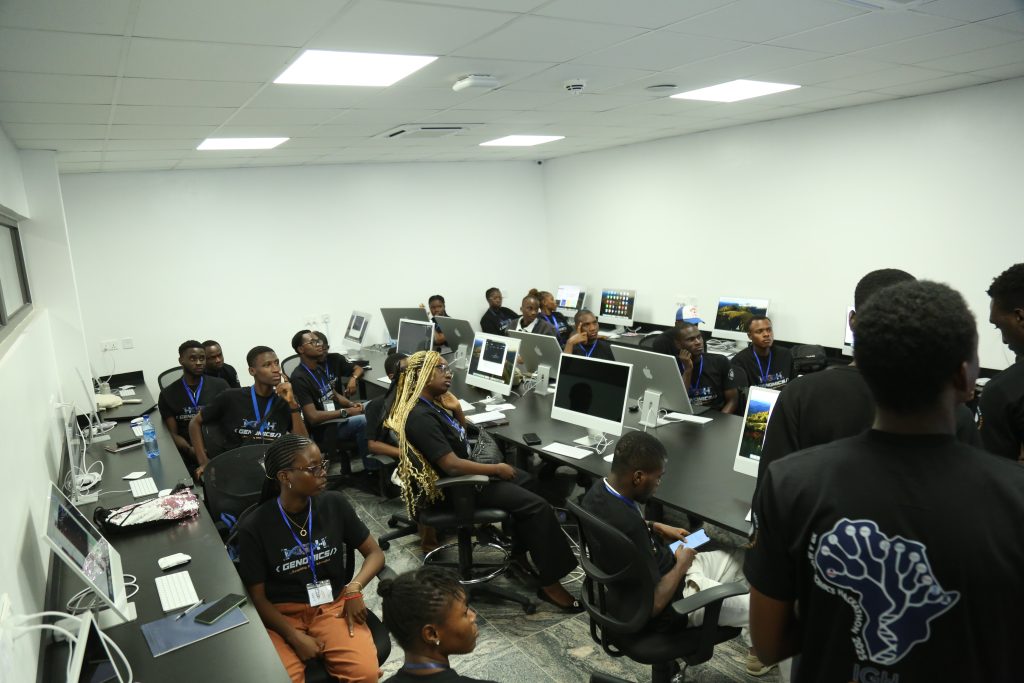
The on-site programme at IGH in Redeemer’s University brought together the top 20 participants for a fully immersive experience:
- First Day & Introduction: Participants were welcomed by the IGH Director, toured labs and XR facilities, and received a detailed overview of the three-week programme. Sponsors and judges set the tone, emphasising collaboration, innovation, and African scientific leadership.
- Pre-Demo Day: Teams rehearsed their presentations, receiving mentorship on technical clarity, storytelling, and impact demonstration. Judges and mentors reinforced alignment with African genomic and health priorities, preparing participants for the final showcase.
Demo Day: The hackathon culminated with innovative project presentations across AI and XR domains. Winning projects included AI-powered genomic surveillance platforms, XR-based laboratory simulations, and educational tools. IGH leadership, alongside sponsors and judges, emphasised the hackathon’s transformative potential for Africa’s genomic and public health ecosystem.
Key Achievements
- Historic Milestone: First XR & AI Genomics Hackathon in Africa, establishing a precedent for continent-wide innovation initiatives.
- Talent Identification: Over 2,000 applications across Africa were narrowed to the top 20 innovators, demonstrating Africa’s emerging capacity in genomics, AI, and XR.
- Hands-on Training: Participants gained practical skills through immersive workshops, data analysis exercises, and collaborative project development.
- Mentorship and Networking: Interaction with IGH leadership, judges, and sponsors provided real-world insight into innovation, research funding, and scaling solutions.
Innovation Showcase: Demo Day highlighted actionable, Africa-relevant solutions, combining XR, AI, and genomics for healthcare, education, and research advancement.
Conclusion
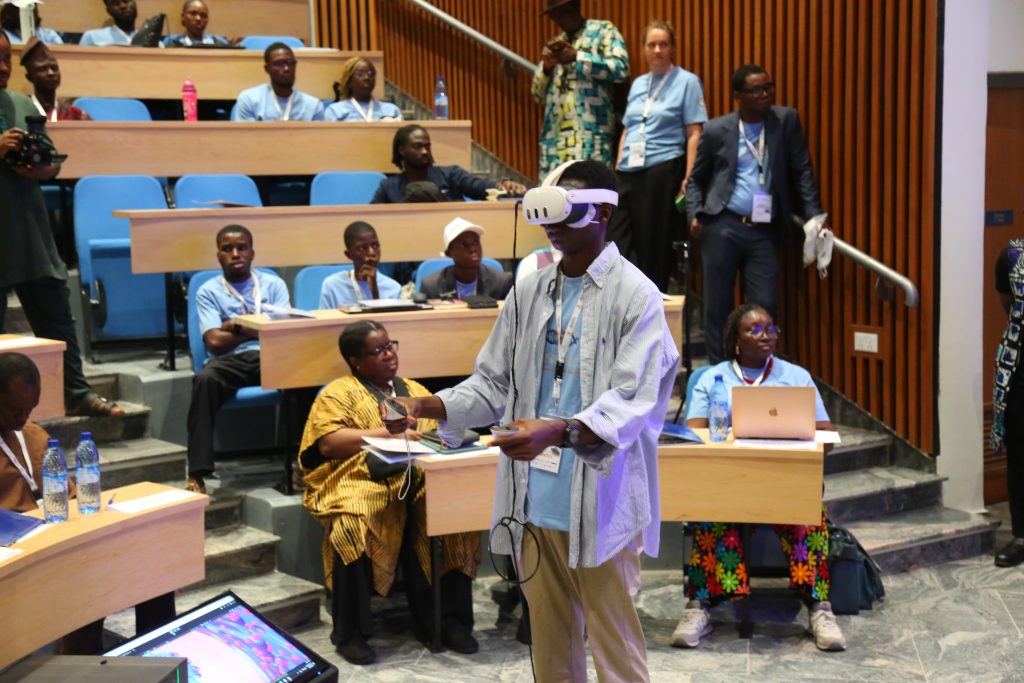
The IGH XR & AI Genomics Hackathon successfully demonstrated Africa’s capacity to lead in advanced genomics, AI, and XR research. By integrating technical training, mentorship, and hands-on project development, the hackathon not only celebrated innovation but also provided a blueprint for cultivating a generation of African scientists poised to compete globally.
The institute remains committed to scaling these initiatives, supporting participant projects, and building sustainable platforms for Africa’s genomic and technological future.
